Is coffee healthy? Can coffee make you happier? Is coffee addictive?
A review of the mountain of coffee-related scientific research published this year offers some answers, but it also makes one thing abundantly clear: All these questions may become obsolete within a matter decades.
Why? Because a legitimate portion of the research this year provides stark warnings regarding coffee’s susceptibility to existential threats like disease and loss of suitably biodiverse lands, much of which is being brought about by climate change.
For our 2022 Year in Review, we’ve divided our science news coverage into three categories: 1) Production and Sustainability, without which the other two categories will not exist; Consumer Preferences and Quality; and Health.
Production and Sustainability
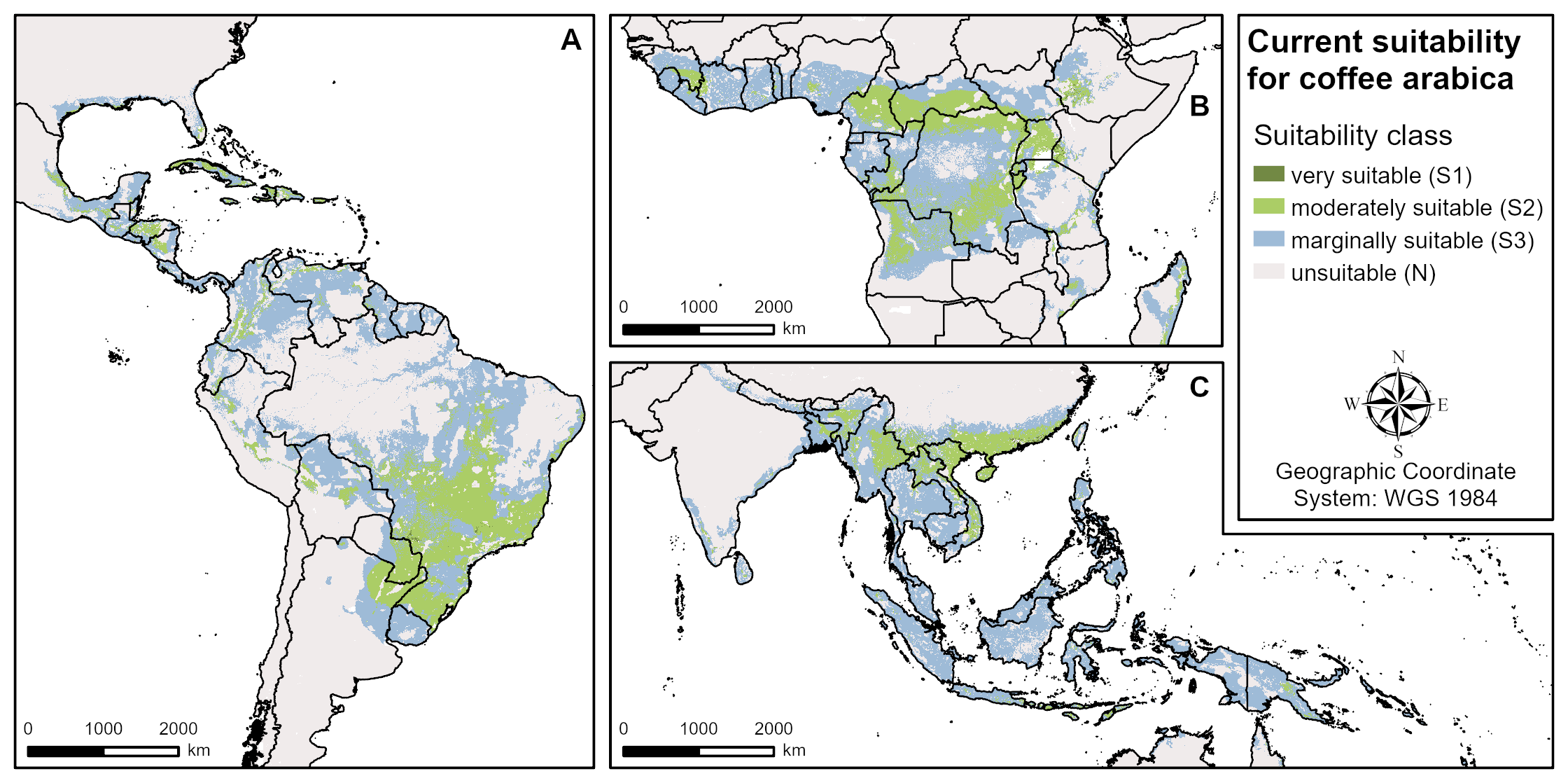
Overall current suitability for coffee (aggregated climate, land and soil suitability). A Central and South America, B West and Central Africa, C South and Southeast Asia. Grüter et al / PLOS, CC BY-SA
Research Says Climate Change to Erase More Than 50% of Suitable Coffee Land by 2050
A dire warning to current coffee producers and to the sustainability of the coffee industry at large, the study echoes the groundbreaking 2014 research projecting that climate change would cut the available coffee-growing land in half by the middle of this century.
Led by Roman Grüter and colleagues at Zurich University of Applied Sciences, the new study applied projections from 14 global climate models and three different future emissions scenarios to land and soil requirements for crops, such as pH, texture and slope… Read more
Land Sparing or Land Sharing? Study Suggests Biodiversity in Coffee Lands Requires Both
Given the fact that commercial farming of any kind requires large swaths of land, the very concept of sustainable coffee production remains paradoxical.
As the authors of a groundbreaking new study on land use and biodiversity in coffee write, “Protecting biodiversity while sustaining agricultural production is one of our greatest modern challenges.”… Read more
SCA Carbon and Coffee Report Calls for Greenhouse Gas Reductions
As world leaders meet this week in Egypt for the COP27 climate conference, the Specialty Coffee Association is bringing to light its recent report outlining what coffee organizations might do to address their carbon footprints.
Called “Coffee and Carbon: GHG Emission Reductions Progress and Strategies Across the Value Chain,” the 47-page report underscores the need for the coffee industry to adapt to a warming climate that threatens the viability of coffee production, especially as global coffee demand soars… Read more
Global Warming Puts Arabica Coffee at Risk, and We’re Barreling Towards a Crucial Threshold
Coffee may be a major casualty of a hotter planet. Even if currently declared commitments to reduce emissions are met, our new research suggests coffee production will still rapidly decline in countries accounting for 75% of the world’s Arabica coffee supply… Read more
Study Backed by Qima and Lavazza Examines Yemeni Coffee Names
A new study published in the journal Agronomy has found that vernacular names given to cultivated coffee plants in Yemen are not necessarily reflective of the plants’ genetic backgrounds.
Funding parties behind the research warn that such a disconnect might ultimately harm the international reputation of Yemeni coffees and put farmers at risk of making poor decisions regarding future cultivation… Read more
Major Leaf Rust Study Shows Increased Susceptibility as Disease Variants Emerge
Most people reading the news over the past two-plus years now know more about disease variants and transmission than they ever may have wished.
Yet new discoveries came to light just this spring in research conducted on the genetic nature of the disease that has beleaguered coffee producers for more than a century: coffee leaf rust, or CLR… Read more
Birds and Bees Combined Give Big Boost to Coffee Crops, Study Shows
A new study involving real-world experiments at 30 coffee farms has found that coffee fruit health and production is dramatically improved with the increased presence of both birds and bees.
The research underscores the need to support agroforestry systems in coffee farming — as opposed to deforested monocrop systems — in order to support biodiversity, plant health, and potentially producer incomes… Read more
Four-Year BREEDCAFS Project Shows Productivity Plus Quality in Resilient Arabica Hybrids
As the specter of climate change looms over the future of coffee production, a major agricultural agency believes F1 arabica hybrid cultivation in agroforestry systems may be the key to increased and resilient production, reduced pesticide use and improved coffee quality.
These are some of the key results from a four-year research project coordinated by the French agricultural research agency CIRAD, which involved approximately €4.2 million (approximately US$4.4 million) in funding from the European Commission… Read more
Consumer Preferences and Quality
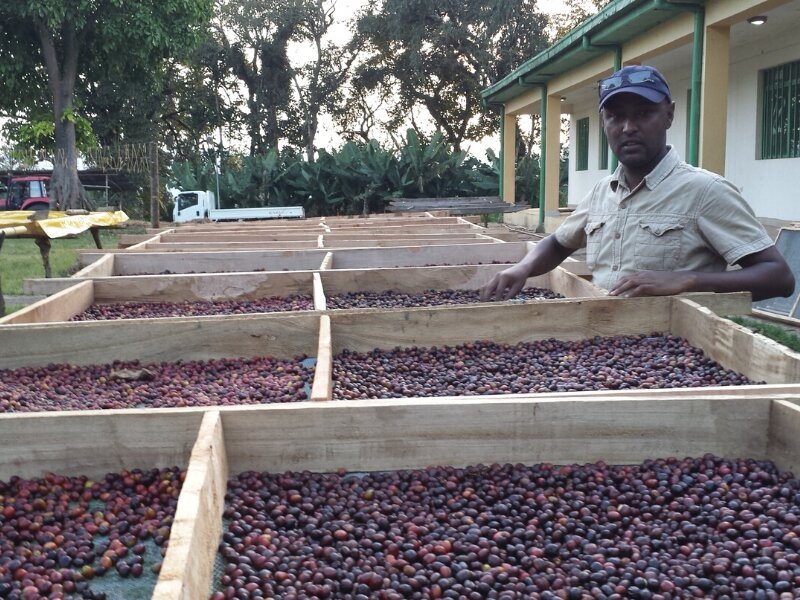
Researcher Addis Alemayehu with collected coffee cherries drying on a wire mesh. American Society of Agronomy press photo by Fikadu Ejigu.
Researchers in Ethiopia Determine What Has Biggest Impact on Coffee Quality
Working in coffee’s genetic birthplace, a group of researchers in Ethiopia recently explored a question that’s confounded the coffee industry since the dawn of commercial cultivation: What factors most impact coffee quality?
What they found was that coffees picked most consistently at peak ripeness that were kept within specific moisture content ranges throughout their processing journey exhibited the best quality characteristics, including better sweetness and acidity ratings… Read more
Some Like It Hot: Study Identifies Consumer Preferences for Coffee Temperatures
It’s a well-known non-scientific fact that hot coffee served too cold is an abject disaster that will cause even the most mild-mannered coffee drinkers to fully lose their chill.
Now actual science is backing that up, with new research pointing to ideal temperature ranges for hot coffee served in commercial applications, based on consumer preference… Read more
Immerse Yourself in this New Cold Brew vs. Hot Brew Sensory Study
A new study suggests that cold-brewed coffee may be associated with more floral flavors and less bitter, sour and rubbery flavors than hot-brewed coffee served at the same cool temperature.
The Specialty Coffee Association‘s scientific research arm, the Coffee Science Foundation, called the recently published report a “milestone study” in its ongoing cold brew extraction research project, which was formally launched in early 2020… Read more
Beam Me Cup, Scotty; German Scientists Make Cold Brew With Lasers
Researchers in Germany have successfully used Nd:YAG lasers to speed up coffee extractions in cold water, essentially making the first laser cold brew.
Preliminary results published in April in the science journal Nature indicate that with the help of lasers, a cold brewed coffee drink that is similar in character to brew made by immersing grounds in water for 12-24 hours can be produced in as little as three minutes… Read more
NCA Report: More Young Adults Than Ever Are Daily Coffee Drinkers
A record number of young adults, age 18-24, are drinking coffee in the United States, with 51% reporting drinking some kind of coffee within the past day, according to the latest edition of the National Coffee Data Trends (NCDT) report issued by the U.S. National Coffee Association (NCA).
That’s the highest number since the report began tracking consumption trends by age demographic, and it follows an upward trend in young peoples’ coffee consumption since the start of the pandemic. The previous high for 18-to-24-year-olds was 50%, set in 2020… Read more
Research Reveals Why Some People Prefer Black Coffee and Dark Chocolate
People who prefer their coffee black also tend to prefer dark chocolate, according to new research that may have implications regarding both consumer preference and human health.
The reason those preferences are aligned, according the study author, Northwestern University Associate Professor of Preventive Medicine Marilyn Cornelis, is due to a common genetic variant… Read more
Health
Major Study Links 2-3 Cups of Coffee Per Day with Longer Life
A study promoted last month by the European Society of Cardiology (ESC) adds to the substantial pile of recent evidence suggesting that coffee drinking is associated with improved heart health and longevity.
Published in the European Journal of Preventive Cardiology, the study found that drinking two to three cups per day was linked with a longer lifespan and a lower risk of cardiovascular disease when compared with avoiding coffee… Read more
Study: Coffee Not Associated with Miscarriage or Other Negative Pregnancy Outcomes
A genetic analysis of pregnant women has found that drinking coffee during pregnancy led to “no greater risk” of miscarriage, stillbirth or premature birth.
Researchers at the University of Queensland in Australia used the Mendelian randomization method, involving eight genetic variants, to determine whether variants associated with coffee consumption in pregnant women were associated with negative birth outcomes… Read more
German Researchers Say It’s ‘Plausible’ Coffee Can Prohibit COVID Infection
Following first-of-its-kind biochemical research, a team of scientists in Germany says “it’s plausible” coffee consumption can prevent COVID infection in humans.
At Jacobs University in Bremen, Germany, the team of researchers explored how the chemical compound 5-caffeoylquinic acid, commonly known as chlorogenic acid, might interact with the coronavirus… Read more
Coffee May Reduce Hip Fractures in Women, Says New Study
“This is an interesting finding given that tea and coffee are the UK’s favourite drinks,” University of Leeds Professor and research supervisor Janet Cade said in an announcement of the findings. “We still need to know more about how these drinks could affect bone health but it might be through promoting the amount of calcium present in our bones.”… Read more
Study: Caffeine Consumption During Pregnancy Leads to Slightly Shorter Children
Exposure to caffeine in the womb, even in amounts lower than currently accepted United States guidelines, may lead to reduced height in childhood, according to a major new study published this week in the Journal of the American Medical Association (JAMA) Network.
According to the research, children of women who reported ingesting low amounts of caffeine during pregnancy were slightly shorter than the children of women who drank no caffeine, with height gaps particularly pronounced between ages 4 and 8… Read more
Research: Common Coffee Chemical Combined with Flu May Damage Lungs
“We found that a single exposure to diacetyl for short periods of time did not result in much lung damage,” study lead author Matthew D. McGraw said in an announcement from the university. “But when mice are exposed to another common environmental exposure, like flu, the double hit can cause airway disease similar to what we see with high-dose, long-term exposures to diacetyl.”… Read more
Coffee Just Before Shopping Leads to Impulse Buying, Research Shows
People who drank a complimentary espresso drink just prior to heading into retail stores spent about 50% more money inside than people who drank decaffeinated coffee or water, according to a study recently published in the Journal of Marketing.
In addition to spending more money overall, caffeinated shoppers were found to purchase 30% more items and were far more likely to purchase nonessential items… Read more
Florida Researchers Suggest Morning Coffee Might Quell Nicotine Cravings
More than just an insufferable Jim Jarmusch project, coffee and cigarettes is also the subject of scientific research.
Specifically, researchers have concluded that coffee and caffeine consumption may help reduce morning nicotine cravings among cigarette smokers… Read more
Study: Even Moderately Sweetened Coffee Can Help Delay Death
Over the past five years, study after study after study has shown that regular coffee consumption may fend off the the impervious dark grip of death.
Yet as with any medical research on coffee and health, those studies are woefully insufficient in the coffee category, not adequately defining what constitutes a cup or accounting for additions such as cream or sugar… Read more
Habit or Need? New Study Examines Why People Drink Coffee
Researchers at the University of Southern California have given new emphasis to the term “force of habit” in coffee consumption.
For a study recently published in Psychological Science, researchers asked a study group of coffee-drinking college students whether they drink coffee because of an “inner state,” such as tiredness, or because of habit… Read more
Study: Coffee Does Not Affect Long-Term Happiness
Despite the myriad things coffee does right — like make the world go ’round — it does not necessarily lead to long-term happiness, according to a study published earlier this summer in the peer-reviewed journal PLOS One.
Led by a research team at the school of public health at Harvard University, the study explored coffee consumption as it relates to happiness and optimism among nurses who took part in the Nurses’ Health Study, one of the largest long-term research initiatives exploring chronic diseases in women… Read more
Three New Studies Show Excellent Heart Health News for Coffee Drinkers
Three related studies that combined comprise what the authors believe is the largest analysis of coffee’s role in heart disease and mortality show excellent news for regular coffee drinkers.
The studies, presented in three subsequent days last month at the annual American College of Cardiology (ACC) convention in Washington D.C., found that daily coffee consumption was associated with lower risk of heart disease and dangerous heart rhythms, and also with overall longevity… Read more
Coffee Consumption May Prevent Uterine Cancer, Research Finds
Coffee consumption may significantly reduce the risk of endometrial cancer, a type of cancer that begins in the lining of uterus and tends to slowly spread to other organs, according to a new study.
A group of researchers based in China reviewed 24 observational studies spanning more than four decades and any languages. The meta analysis involved nearly 700,000 subjects and 9,833 cases of endometrial cancer… Read more



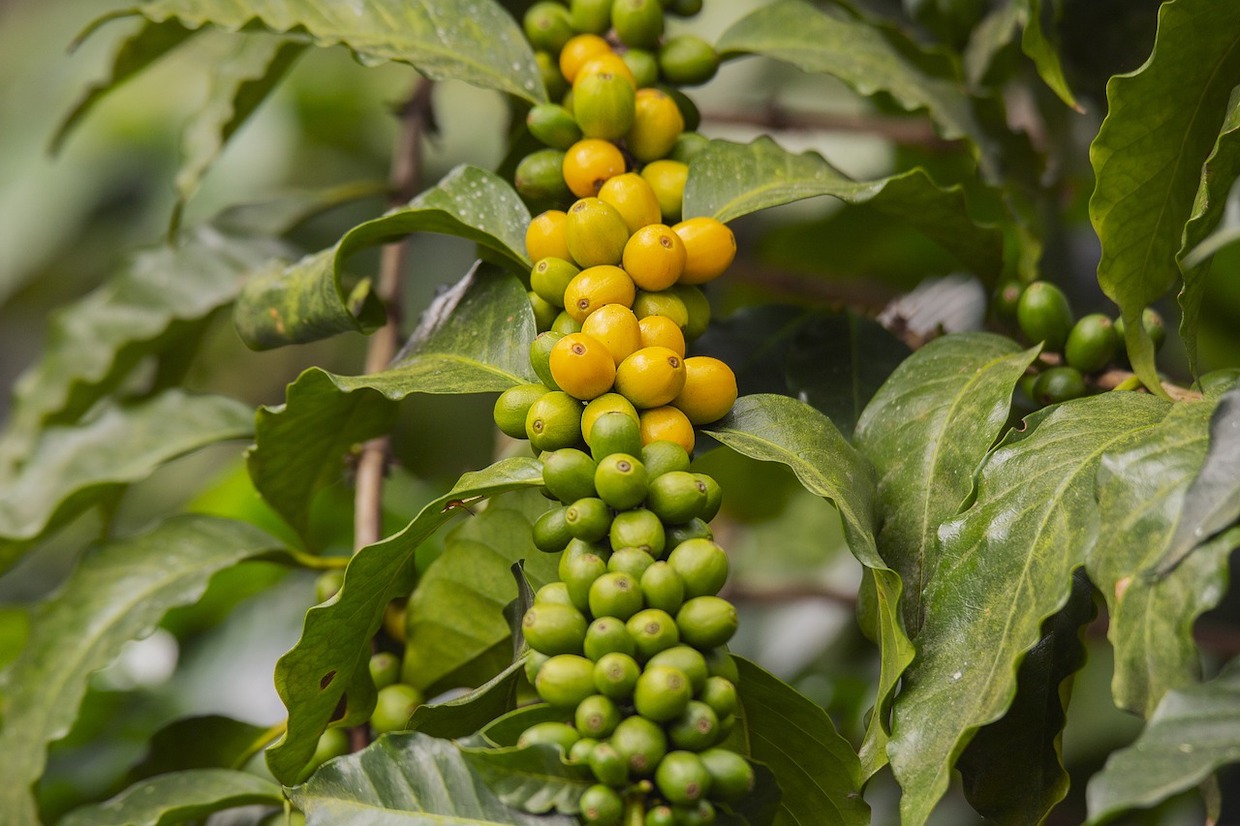
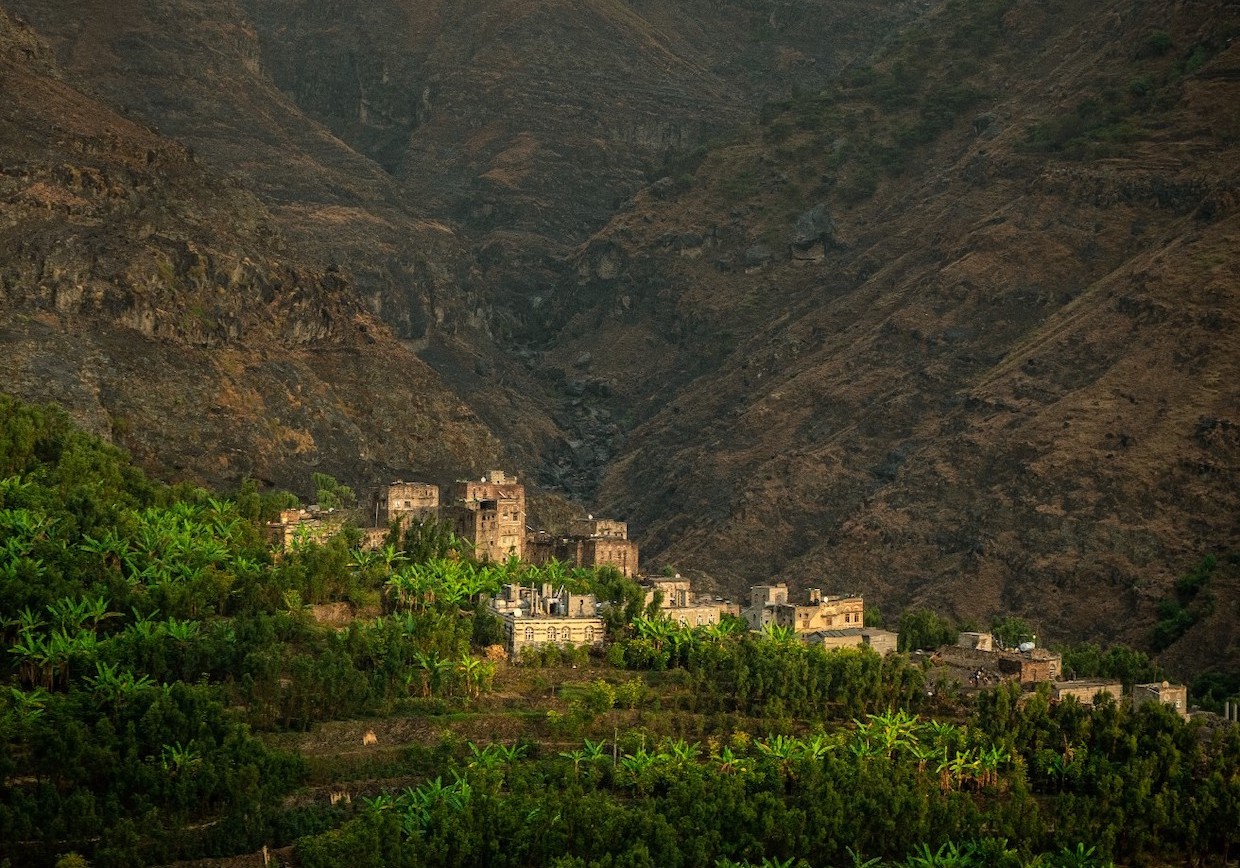
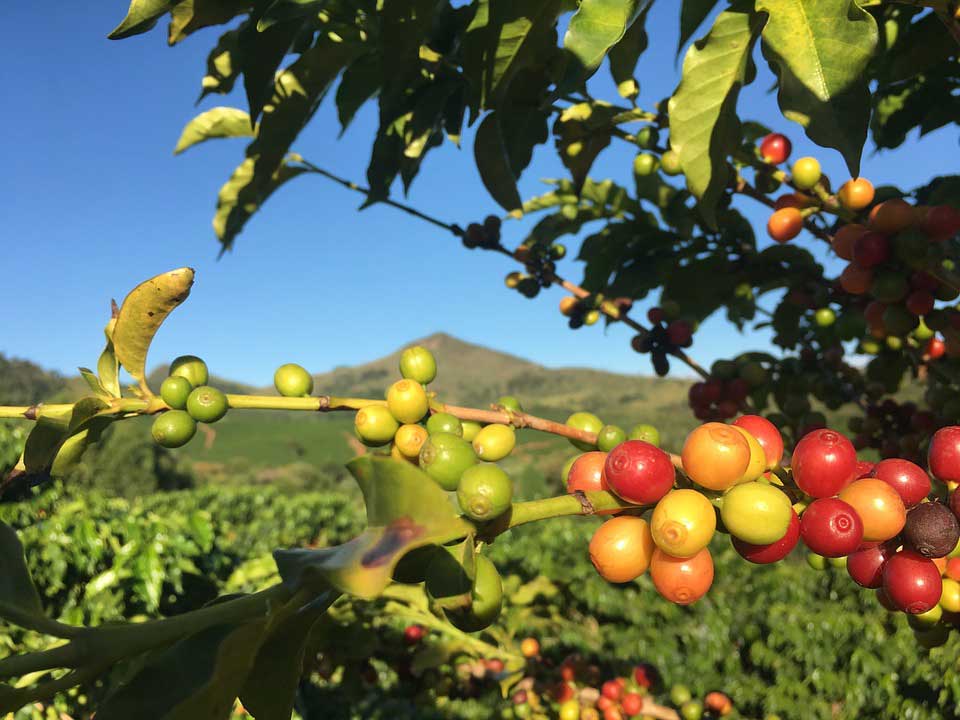
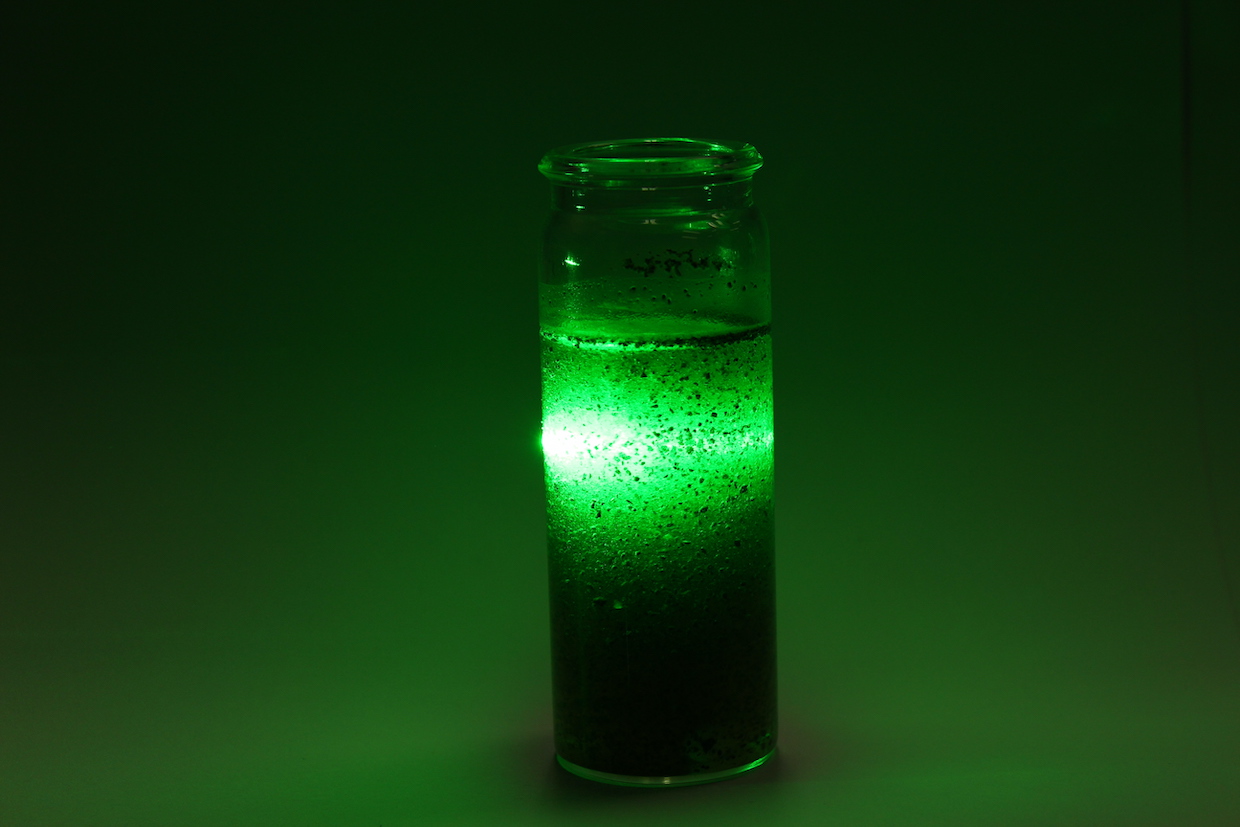

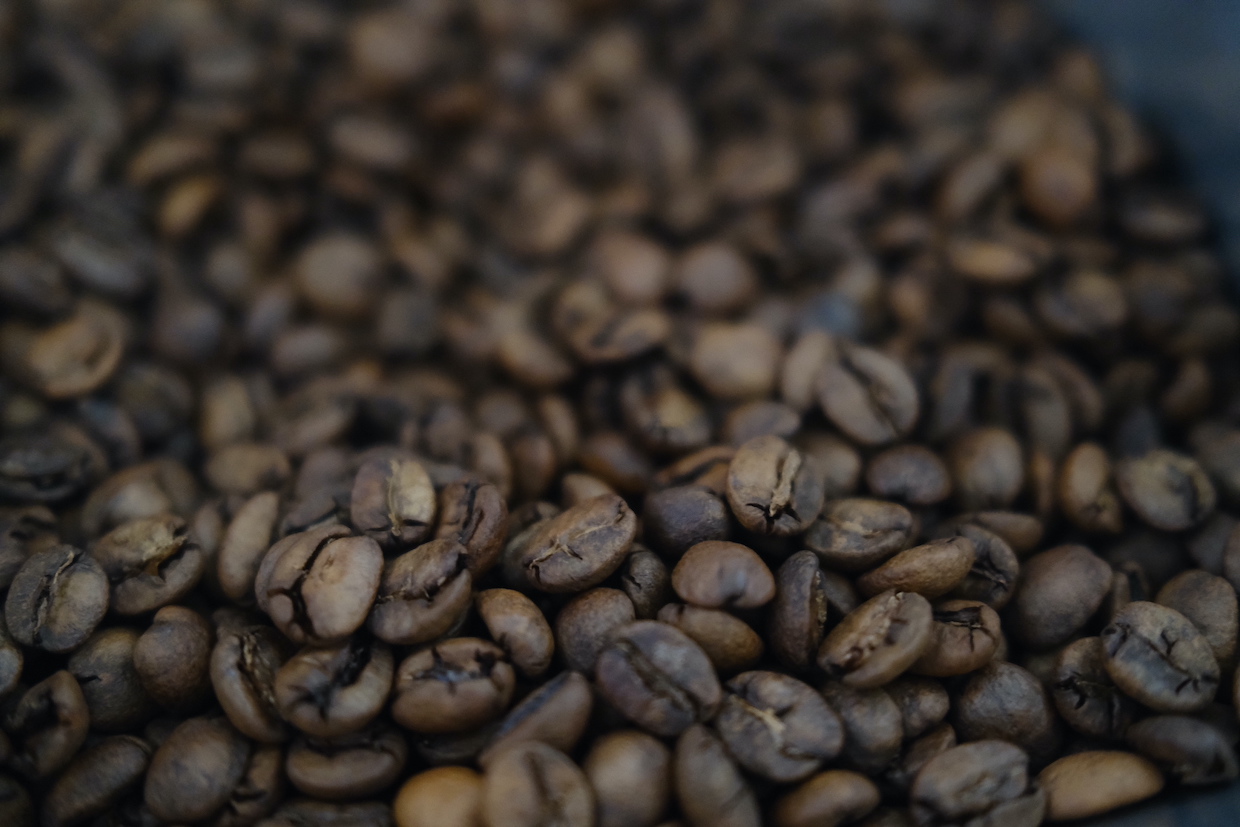
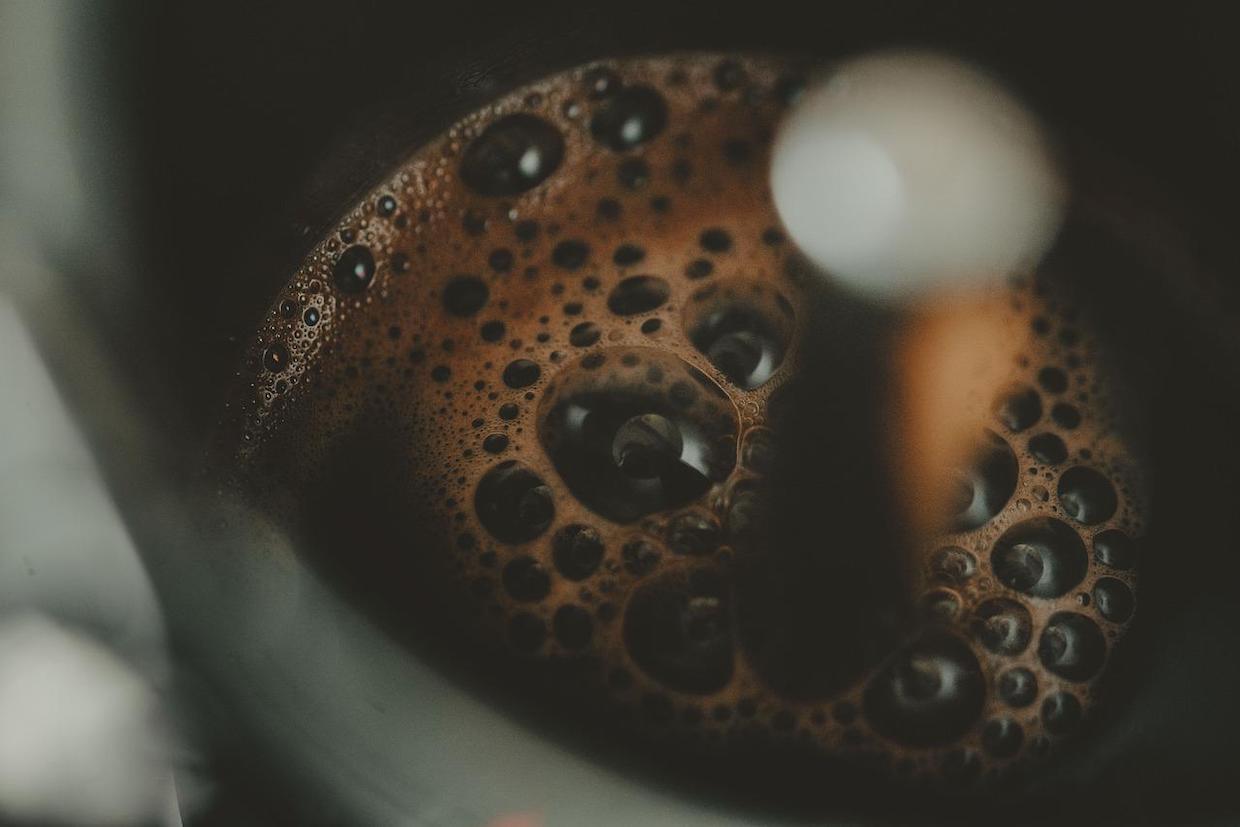



Comment